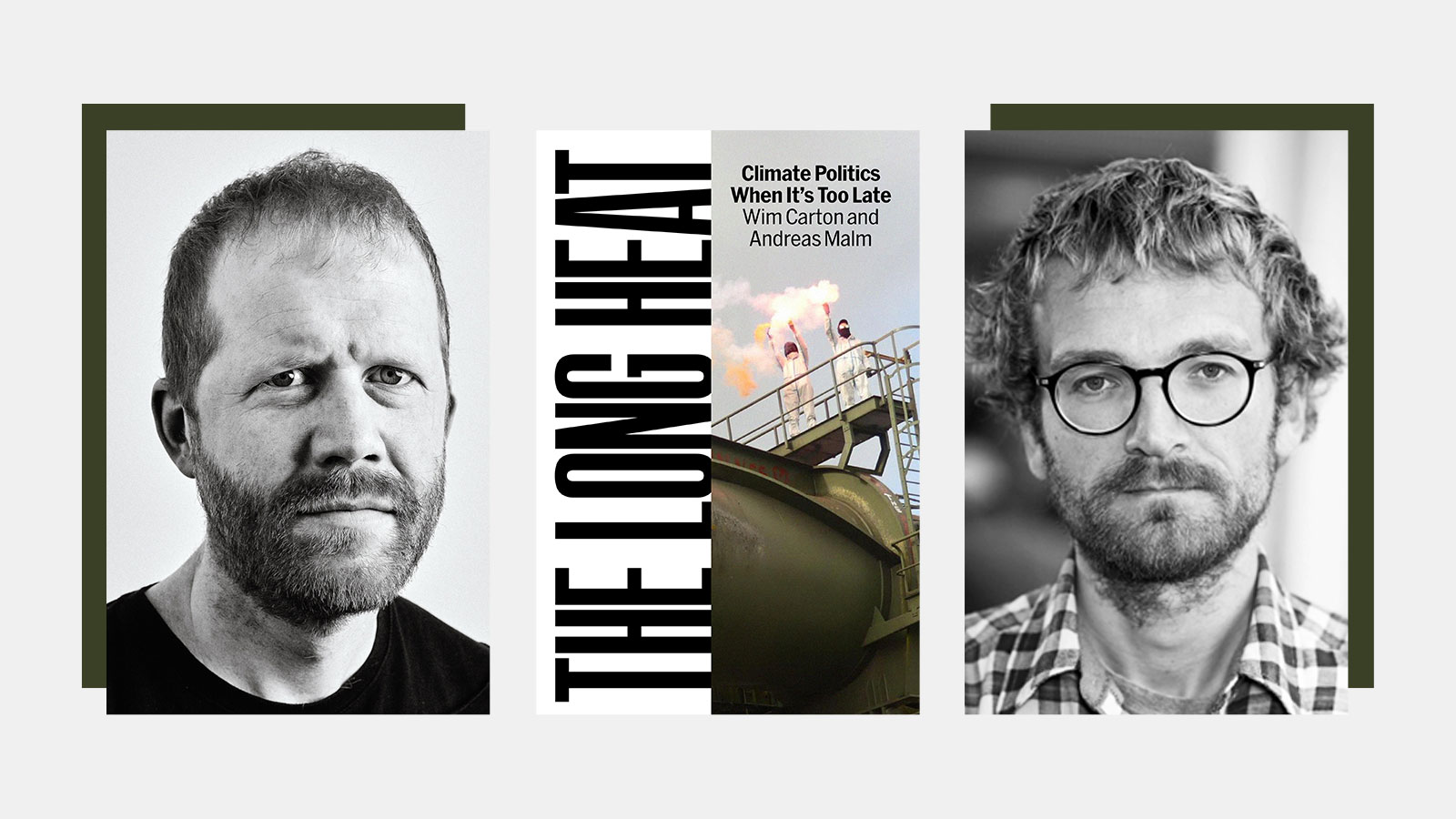It may sound drastic to physically manipulate entire biomes rather than, say, stop extracting fossil fuels, but in recent years, these kinds of ideas have grown more prevalent. Other so-called “climate solutions” have envisioned removing carbon from the atmosphere by planting 1 trillion trees (which would have uncertain climate benefits and require an unrealistic amount of space), cultivating carbon-munching bacteria, or “managing” global sea level rise by building giant underwater curtains. At least one scientist has put forward the idea that we “manipulate the orbit of asteroids,” hitching them to the Earth to nudge the planet to a cooler zone farther away from the sun, despite the risk that this would eject us from the sun’s orbit.
In their new book The Long Heat: Climate Politics When It’s Too Late, the Swedish academics Wim Carton and Andreas Malm attempt to explain what’s going on. As they see it, these complicated ideas have arisen from society’s unwillingness to challenge “fossil capital,” the extensive network of infrastructure, assets, and systems owned by companies intent on preserving business interests associated with fossil fuels. That includes pipeline companies, auto manufacturers, electric utilities, banks, and more. Those seeking to address climate change have imagined fossil capital as an “unassailable background condition,” Carton and Malm write, which means they’ve had to assail something else — anything else, even if it’s the oscillation between day and night.
“Deference to the political status quo translates into reckless experimentation with ecosystems or an entire biome,” Carton and Malm write. “Because the former is unbreakable, the latter must be broken.”


